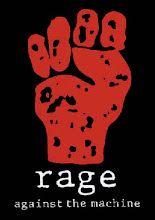From Wikipedia, the free encyclopedia:
An ideology is a set of aims and ideas that directs one's goals, expectations, and actions. An ideology can be thought of as a comprehensive vision, as a way of looking at things (compare worldview), as in common sense (see Ideology in everyday society below) and several philosophical tendencies (see Political ideologies), or a set of ideas proposed by the dominant class of a society to all members of this society (a 'received consciousness' or product of socialization). The main purpose behind an ideology is to offer change in society, and adherence to a set of ideals where conformity already exists, through a normative thought process. Ideologies are systems of abstract thought (as opposed to mere ideation) applied to public matters and thus make this concept central to politics. Implicitly every political tendency entails an ideology whether or not it is propounded as an explicit system of thought. further-reading...
Ideology as an instrument of social reproduction
In the Marxist economic base and superstructure model of society, base denotes the relations of production, and superstructure denotes the dominant ideology (religious, legal, political systems). The economic base of production determines the political superstructure of a society. Ruling class-interests determine the superstructure and the nature of the justifying ideology — actions feasible because the ruling class control the means of production. Hence the great importance of the ideology justifying a society; it politically confuses the alienated groups of society via false consciousness, such as in the case of commodity fetishism — the belief that value is inherent to a commodity, rather than external, added to it via labor.
The ruling class affect their social reproduction by the dominant ideology’s representing — to every social-economic class — that the economic interests of the ruling class are the economic interests of the entire society. Some explanations, György Lukács proposes ideology as a projection of the class consciousness of the ruling class. Antonio Gramsci uses cultural hegemony to explain why the working-class have a false ideological conception of what are their best interests.
Chronologically, the dominant ideologies in Capitalism are:
1.classical liberalism
2.modern liberalism
3.social democracy
4.neo-liberalism
corresponding to these three capitalist stages of development:
1.extensive stage
2.intensive stage
3.contemporary capitalism (late capitalism)
An ideology is a set of aims and ideas that directs one's goals, expectations, and actions. An ideology can be thought of as a comprehensive vision, as a way of looking at things (compare worldview), as in common sense (see Ideology in everyday society below) and several philosophical tendencies (see Political ideologies), or a set of ideas proposed by the dominant class of a society to all members of this society (a 'received consciousness' or product of socialization). The main purpose behind an ideology is to offer change in society, and adherence to a set of ideals where conformity already exists, through a normative thought process. Ideologies are systems of abstract thought (as opposed to mere ideation) applied to public matters and thus make this concept central to politics. Implicitly every political tendency entails an ideology whether or not it is propounded as an explicit system of thought. further-reading...
Ideology as an instrument of social reproduction
In the Marxist economic base and superstructure model of society, base denotes the relations of production, and superstructure denotes the dominant ideology (religious, legal, political systems). The economic base of production determines the political superstructure of a society. Ruling class-interests determine the superstructure and the nature of the justifying ideology — actions feasible because the ruling class control the means of production. Hence the great importance of the ideology justifying a society; it politically confuses the alienated groups of society via false consciousness, such as in the case of commodity fetishism — the belief that value is inherent to a commodity, rather than external, added to it via labor.
The ruling class affect their social reproduction by the dominant ideology’s representing — to every social-economic class — that the economic interests of the ruling class are the economic interests of the entire society. Some explanations, György Lukács proposes ideology as a projection of the class consciousness of the ruling class. Antonio Gramsci uses cultural hegemony to explain why the working-class have a false ideological conception of what are their best interests.
Chronologically, the dominant ideologies in Capitalism are:
1.classical liberalism
2.modern liberalism
3.social democracy
4.neo-liberalism
corresponding to these three capitalist stages of development:
1.extensive stage
2.intensive stage
3.contemporary capitalism (late capitalism)
The Marxist formulation of “ideology as an instrument of social reproduction” is conceptually important to the sociology of knowledge, viz. Karl Mannheim, Daniel Bell, and Jürgen Habermas et al.. Moreover, Mannheim has developed, and progressed, from the 'total' but 'special' Marxist conception of ideology to a 'general' and 'total' ideological conception acknowledging that all ideology (including Marxism) resulted from social life, an idea developed by the sociologist Pierre Bourdieu.
Conclusion
An ideology is just a 'set of aims and ideas' taught by the colonizer/ capitalist to smoothing their path on achieving their emperialism. as we know, their method is divide and conquer. how? by creating ideologies. They make deception and confusing people in order to create chaos. then, they will appear as a 'peace-maker'.
ideology is just confusing us. nasionalism, communism, capitalsm, wahabism, shi'itism and many more. its all depends on us to think rasionally, know what is wrong and what is right. the method of an ideology is 'covered' or 'wrapped' the hidden objective (agenda) by a good thing. for example, nasionalism-defend your country, ur race and so on. this ideology appear to be good for our country but it will cause racism and chaos. that's why we must take only the good thing in every ideology.
In short, there are NO NEED OF IDEOLOGY, the only ideology we must choose to follow is ISLAM. just follow AL-QURAN and SUNNAH. we are all in 'common ground' the battle is only between these two; GOOD and EVIL. thats it
-741056.jpg)







